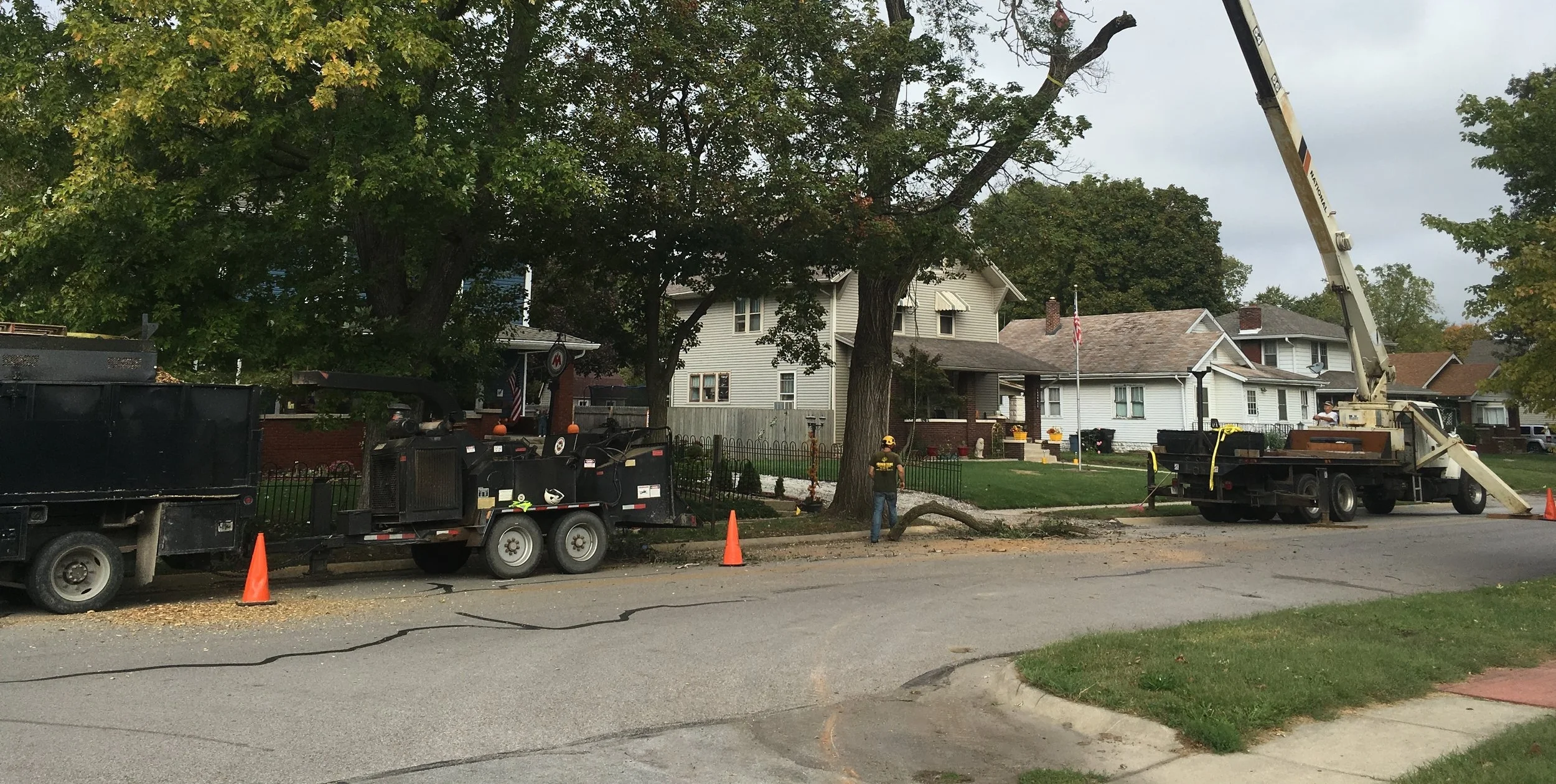Tree Wounds…Tips for avoiding them when pruning!
/Did you know that tree wounds are actually common? There are several ways a tree can become wounded or damaged. “Trees are commonly wounded and the causes are many: broken branches; impacts, abrasions and scrapes; animal damage; insect attack; fire; etc.” (University of Tennessee) Many of these wounds cause permanent damage and possible death if not addressed properly. “Wounds expose the inside of the tree to organisms, primarily bacteria and fungi that may infect and cause discoloration and decay of the wood. Decay can result in structurally weakened tree stems and unsightly trees and can shorten the life of a tree.” (University of Tennessee)
Trees can also become wounded and have permanent damage if they are not pruned properly. “Trees wounded in any way have a natural defense mechanism, which allows them to recover. This process is called CODIT (Compartmentalization of Decay in Trees), which is walling-off or sealing affected areas to prevent decay from spreading from the point of the wound into the tree.” (Purdue University) In order to avoid further decay and possible weakness in the tree it’s important to make the proper cuts when pruning. “Pruning cuts should be made to maximize the tree’s ability to close its wound and defend itself from infection. When pruning, make clean, smooth cuts. Do not leave branch stubs. Leave a small collar of wood at the base of the branch.”(Agrilife.org)
For more assistance with proper pruning and how to avoid causing wounds on your trees, contact a licensed arborist to assist you. They can guide you make the right cuts to keep your trees healthy and strong in the future.
Browning Tree Service employs Joshua Browning ISA certified arborist license #KY-9849A who is a proud member of Indiana Arborist Association and International Society of Arboriculture, serving the West Lafayette and Lafayette, Indiana area!
Resources:
https://extension.purdue.edu/extmedia/fnr/fnr-506-w.pdf
https://extension.tennessee.edu/publications/Documents/SP683.pdf










